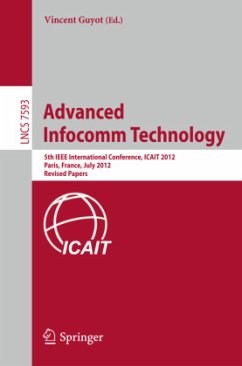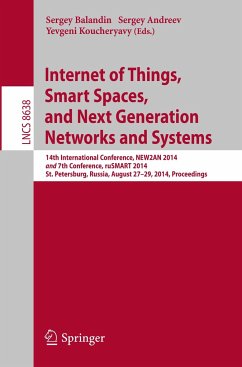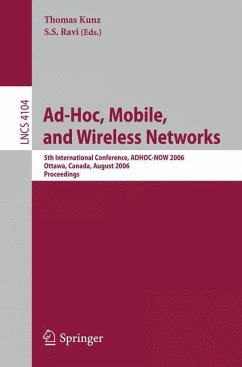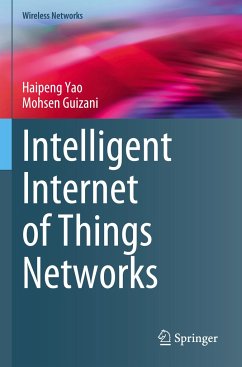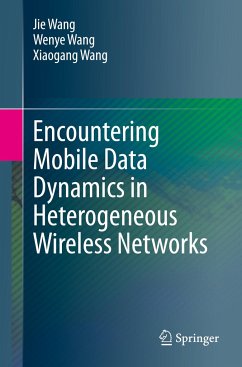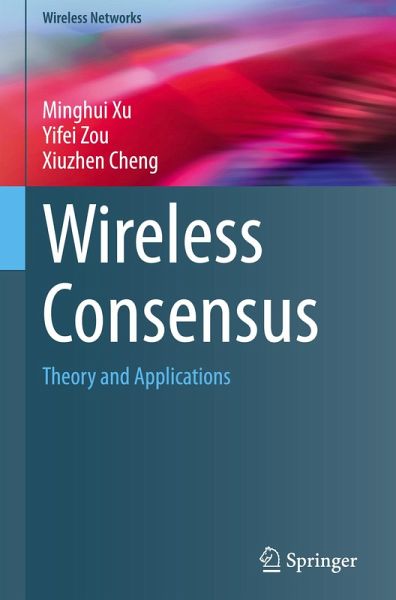
Wireless Consensus
Theory and Applications
Versandkostenfrei!
Versandfertig in 6-10 Tagen
121,99 €
inkl. MwSt.
Weitere Ausgaben:

PAYBACK Punkte
61 °P sammeln!
This book explores the critical role of wireless consensus protocols in modern wireless networks. Building upon over two decades of research, it offers a comprehensive exploration of the fundamental principles, historical evolution, and unique challenges associated with wireless consensus. Beyond the theoretical underpinnings, the book delves into practical solutions for ensuring fault tolerance and resilience against malicious attacks, introducing cutting-edge techniques like fault-tolerant wireless consensus and Byzantine fault-tolerant wireless consensus. Recognizing the transformative pote...
This book explores the critical role of wireless consensus protocols in modern wireless networks. Building upon over two decades of research, it offers a comprehensive exploration of the fundamental principles, historical evolution, and unique challenges associated with wireless consensus. Beyond the theoretical underpinnings, the book delves into practical solutions for ensuring fault tolerance and resilience against malicious attacks, introducing cutting-edge techniques like fault-tolerant wireless consensus and Byzantine fault-tolerant wireless consensus. Recognizing the transformative potential of blockchain technology, the book also explores its integration with wireless networks, highlighting the emergence of wireless blockchain. Through in-depth analysis, real-world case studies, and forward-thinking insights, this book empowers readers to understand, design, and implement robust wireless consensus systems.
Overall, wireless consensus protocols are essential forenabling reliable decision-making and coordination in wireless networks, particularly in challenging environments with unreliable communication and no central authority. These protocols empower devices to reach agreement on a common state or course of action, ensuring network consistency and security. Additionally, efficient consensus algorithms are crucial for resource-constrained wireless settings, optimizing bandwidth and energy usage to facilitate scalability and broad adoption. With applications spanning IoT, mobile computing, and distributed robotics, wireless consensus underpins critical operations like coordination and data fusion.
This book serves as a valuable resource for both academics and industry professionals. Advanced-level computer science students will find it a suitable supplementary text, while researchers and practitioners seeking a deep understanding of wireless consensus protocols will benefit from its comprehensive coverage. By blending theoretical foundations with practical applications in contemporary wireless networks, this book offers a robust guide for navigating the complexities of the field.
Overall, wireless consensus protocols are essential forenabling reliable decision-making and coordination in wireless networks, particularly in challenging environments with unreliable communication and no central authority. These protocols empower devices to reach agreement on a common state or course of action, ensuring network consistency and security. Additionally, efficient consensus algorithms are crucial for resource-constrained wireless settings, optimizing bandwidth and energy usage to facilitate scalability and broad adoption. With applications spanning IoT, mobile computing, and distributed robotics, wireless consensus underpins critical operations like coordination and data fusion.
This book serves as a valuable resource for both academics and industry professionals. Advanced-level computer science students will find it a suitable supplementary text, while researchers and practitioners seeking a deep understanding of wireless consensus protocols will benefit from its comprehensive coverage. By blending theoretical foundations with practical applications in contemporary wireless networks, this book offers a robust guide for navigating the complexities of the field.





